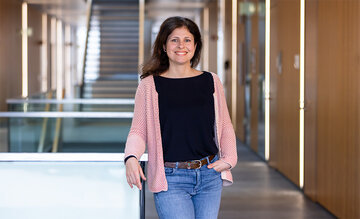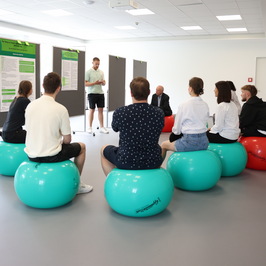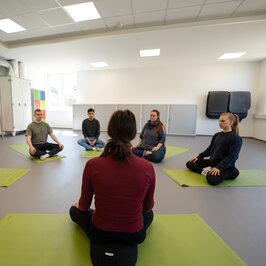What keeps people healthy?
How should working conditions be designed to keep employees healthy and motivated for decades? What opportunities does digitalisation offer for health promotion? What can be done to improve medical care in rural areas? If you find these questions interesting, our master's degree in Applied Health Promotion is the right course for you.
Programme content and structure
Future-oriented content
Health promotion aims to strengthen people's health resources and reduce existing burdens. The focus here is on the various factors that influence health. Social, economic and physical environmental conditions are among the relevant determinants, alongside individual lifestyle factors. By studying with us, you will learn to develop, implement and evaluate needs-based and evidence-based concepts for individual and setting-related health promotion, or to optimise existing ones. The master's degree in Applied Health Promotion deals with health-related topics at a regional and global level. It also examines the healthcare system with all stakeholders involved.
Projects and electives
In the first and second semesters, the research project and a compulsory elective module give you the opportunity to work on very practical issues in line with your interests. The Research Project module, gives you the opportunity to work on a specific question over two semesters, often in cooperation with one of our many practice partners – ideal preparation for future professional activities and just one example of practical transfer during the course.
AGF specifics
Where theory becomes practice
We have very well-equipped laboratories and practical rooms on our campus in Furtwangen. The Future Care Lab focuses on the development of technical assistance systems, and in the Multi-professional Skills Lab, for example, we have an exercise room, a teaching kitchen, a hospital room and a nursing room. Sounds good? Then come and join us!
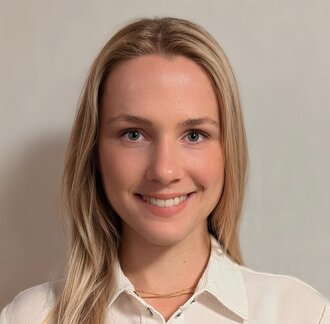
For further information about the degree programme, you’re welcome to contact our student ambassador by email at any time:
Hello, I'm Luisa and I'm currently taking a master's in Applied Health Promotion (AGF) at Furtwangen University.
As a student ambassador, I'm happy to answer any questions you may have about the programme, HFU or everyday life as a student. Just get in touch at: Email application is started:studienbotschafter-agf(at)hs-furtwangen.de.
What's covered
AGF Study and Examinations Regulations (SPO)
- Download file:General Master SPO
- Download file:AGF SPO
- Download file:Admission Regulations AGF
- Download file:AGF Module handbook
- Download file:Part-time Study Regulations
Our electives
Special features
Part-time study
A degree programme that fits your life: Full flexibility with proven quality
Studying is usually a full-time job – but not necessarily. Our bachelor’s degree can also be studied part-time, offering a flexible model that adapts to different stages and situations in life!
The workload corresponds to around 50 per cent of a full-time programme. You should plan for approximately 20 hours per week. Accordingly, your studies will take about twice as long to complete. The programme is structured differently and extended in line with the part-time format. Whether you are working, raising children, or unable to take on full-time studies for other reasons – we are happy to advise you!
Our Download file:FAQs provide a summary of the most important points regarding part-time study.
Your contact for all information on part-time study:
Internal link opens in the same window:Juliana Dlugosch
Your career prospects
With a degree in Applied Health Promotion, you can comfortably take on specialist and management roles in authorities and organisations (e.g., health insurance companies or associations), in occupational health management (OHM) in companies, in educational and research institutions, as well as in the planning of individual health promotion measures in the private sector and in small and medium-sized organisations.
- in the occupational health management of companies (BGM)
- in health advice/health education, e.g., at municipal advice centres or health insurance companies
- in quality assurance in the healthcare sector, e.g., for healthcare institutions and social insurance providers
- in health promotion, e.g., for health authorities, associations or other municipal organisations
- in project management, e.g., for health insurance companies or healthcare facilities such as hospitals and care centres
- in health science research and teaching, e.g., in universities or research institutes
Examples from professional practice
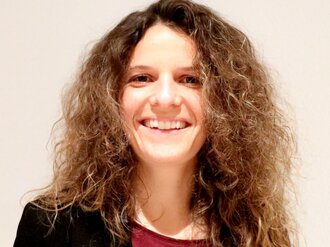
"My responsibilities as a project manager in the Integrated Care Department at Gesundes Kinzigtal GmbH are quite varied. In addition to active project management in various research projects, I'm also responsible for acquiring new projects and quality management, and I'm involved in marketing. I organise events and drive digitalisation forward at our company. At the same time, I have the opportunity to develop my skills continuously, for example by attending conferences and training courses."
Nathalie Haas, Applied Health Promotion graduate

Lea Gorenflo, Applied Health Promotion graduate
“After completing my master's degree at Furtwangen University, I now work as a research assistant at the Institute for Evidence in Medicine at the University Medical Center Freiburg and at the Cochrane Germany Foundation.
At the Institute, I am involved in methodological research projects and evidence syntheses, produce scientific publications and am active in teaching and lecturing.
At the Cochrane Germany Foundation, I mainly focus on disseminating health information via social networks to inform a broad public about current research findings and evidence-based recommendations.
The combination of these two roles allows me to develop extensive knowledge and skills in evidence-based medicine and science communication.”

Ivy Schuckert
“As programme manager of the tobacco and nicotine prevention program for the canton of Schaffhausen (CH), I am responsible for the strategic direction of the programme as well as for quality management.
In collaboration with regional and national service providers and partners, I develop targeted measures to reduce tobacco and nicotine consumption. My work focuses on strategic planning and coordination − I do not carry out direct prevention measures myself.
My work covers much more than just smoking prevention. I am also active in the overall prevention of behavioral and substance addictions and learn new things every day. I regularly take part in networking meetings with other cantons, attend conferences and training courses and exchange ideas with various stakeholders in order to promote innovative prevention methods.”

Marco Sandmann
“At the Rottweil Public Health Department, I head up the Health Planning Department and the Municipal Health Conference.
My main task is to network health stakeholders and develop evidence-based projects. Health reports serve as a basis for planning and implementing well-founded measures tailored to the specific needs of our region.
I transfer scientific findings into practice-oriented projects and support their implementation. In this way, I can contribute to the continuous improvement of healthcare in the district of Rottweil.“.
- Quality Assurance Manager at a care provider
- Health Services Research – AI in Healthcare
- Data Management Officer at the Clinical State Registry Office of Baden-Württemberg
- Officer for Health Promotion and Occupational Safety at a consultancy
- Project Manager at Gesundes Kinzigtal GmbH
- Public Health Department – Division for Health Reporting, Planning, Promotion & Prevention
- Employee in Workplace Health Management at Rolls-Royce
- Research Associate and Doctoral Candidate (university hospitals, Cochrane)
- Project Coordinator for the “Meine Uniklinik” App
- Operational Programme Lead for a Tobacco and Nicotine Prevention Programme
- Lecturer at HFU
Your key contact
Your future is important to me. Contact me for advice.
